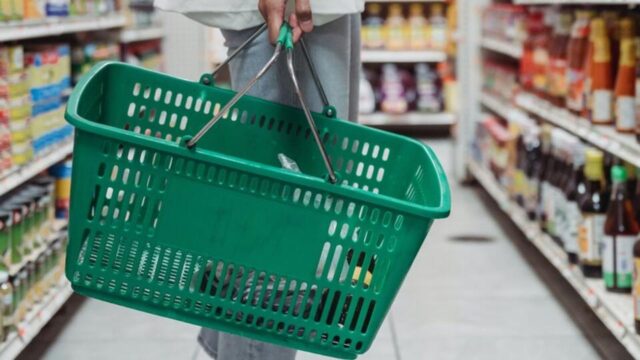The cost of a “survival basket” of food in South Africa at the beginning of 2024 is R1,503, which is 6.07% more than last year, and will see minimum wage earners spend 34.5% of their earnings to buy food.
THE COST of a “survival basket” of food in South Africa at the beginning of 2024 is R1 503, which is 6.07% more than last year, and will see minimum wage earners spend 34.5% of their earnings to buy food.
This is according to a Picodi.com study that looked at minimum wages in different countries; how prices of basic groceries increased; and how the cost of a “survival basket” compares to the minimum wage.
For the study, a basic grocery “survival” basket consisting of eight groups of products, including bread, milk, eggs, rice, cheese, meat, fruits and vegetables, was drawn up for one person for one month and the costs of it were added up.
For South Africa, the minimum net wage was R4,353 and the country ranked 44th out of 67 in terms of what percentage of earnings for minimum wage earners went towards food.
The study noted that the “most comfortable ratio of the grocery basket to the minimum wage was in the UK, Ireland, The Netherlands, Luxembourg and New Zealand. There, workers spend less than one tenth of the local minimum wage on basic groceries.”
Professor Irrshad Kaseeram, from the University of Zululand’s economics department, said the inflation rate faced by low income households was much higher than that faced by those in the middle class and above.
This was because most of the low income category’s income is devoted to food, transport and housing, he said.
“In my view, while the Picodi study might accurately cover the percentage of income devoted to food, it underestimates the actual inflation faced by marginal income earners,” he said.
For example, Kaseeram said the price of chicken and its by-products (liver 23%, eggs 68%) increased significantly because of avian flu.
Moreover, staples like potatoes (92%), sugar (18%), milk (11%) and maas (12%) also experienced huge increases.
Although fuel price increases were not transferred to taxi fares, transport costs have risen significantly since pre-Covid times and so has rent, he said.
“Thus, although the 9.4% minimum wage rise is welcomed, it is far below the overall living costs of marginalised communities.”
Kaseeram said as long as South Africa’s inability to grow the economy persists, marginalised communities’ dismal circumstances would worsen.
Cosatu acting national spokesperson Matthew Parks said the National Minimum Wage (NMW) Act required the NMW Commission and the Minister of Employment and Labour to ensure that it is adjusted annually to ensure that it is protected from being eroded by inflation and retains its impact on poverty.
According to Parks, the NMW has raised the wages of six million workers across the economy, in particular the most vulnerable, which include workers in the farm, domestic, construction, security, transport, clothing, textiles, retail and hospitality sectors, among others.
“It is critical that it is complemented by government interventions to reduce the costs of living and the level of unemployment to help ease the pressure on workers’ salaries,” he said.
Dr Kelle Howson, a senior research consultant at the Institute for Economic Justice, said that while the introduction of a national minimum wage in South Africa was a significant step towards recognising that everyone was entitled to fair pay, the cost of living has been increasing rapidly for over a year.
Howson said many workers were supporting friends and family who are unable to find work due to not enough jobs being available, adding that many people who are working are still unable to make ends meet.
“In order to defeat hunger and move towards an inclusive economy with better pay and sustainable livelihoods, we need a multi-pronged policy response, which includes an adequate minimum wage, and also a social safety net – including social assistance for everyone who needs it,” she said.








